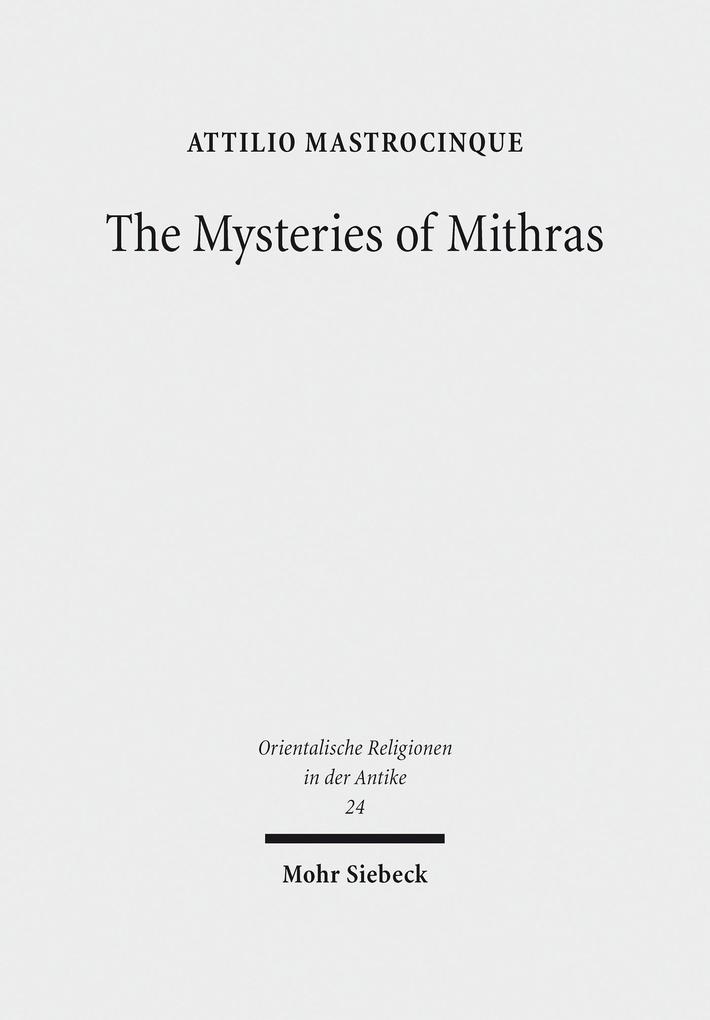
Sofort lieferbar (Download)
In this work, Attilio Mastrocinque cautions against an approach to Mithraism based on the belief that this mystic cult resembles Christianity. While both Christian and pagan authors testified that Mithraic elements were indeed borrowed, according to Attilio Mastrocinque this was only done by some gnostic Christians. He counters that Roman Empire ideology and religion provide better clues on how to approach the matter, contending too that Virgil proves to be more important than the Avesta in understanding Mithraic iconography. The meaning of the central scene - the Tauroctony - thus becomes clear when the Roman triumph's central act of bull sacrifice is thought of as just that, with Mithras playing the role of victor as author of this success. The episodes depicted on many reliefs relate to a prophecy known to Firmicus Maternus and other Christian polemists, and which foretold the coming of a saviour, i.e. the first emperor, when Saturn returns and Apollo-Mithras will rule.
Born 1952; 1975 Master; since 2002 Full Professor of Roman History at the University of Verona; 2008-10 president of Cultural Heritage courses at the University of Verona; 2005-15 Director of the Archaeological Mission at Grumentum (Lucania).
Born 1952; 1975 Master; since 2002 Full Professor of Roman History at the University of Verona; 2008-10 president of Cultural Heritage courses at the University of Verona; 2005-15 Director of the Archaeological Mission at Grumentum (Lucania).
Mehr aus dieser Reihe
Produktdetails
Erscheinungsdatum
01. August 2017
Sprache
englisch
Seitenanzahl
384
Dateigröße
43,99 MB
Reihe
Orientalische Religionen in der Antike
Autor/Autorin
Attilio Mastrocinque
Verlag/Hersteller
Kopierschutz
mit Adobe-DRM-Kopierschutz
Family Sharing
Ja
Produktart
EBOOK
Dateiformat
PDF
ISBN
9783161551185
Entdecken Sie mehr
Bewertungen
0 Bewertungen
Es wurden noch keine Bewertungen abgegeben. Schreiben Sie die erste Bewertung zu "The Mysteries of Mithras" und helfen Sie damit anderen bei der Kaufentscheidung.

































